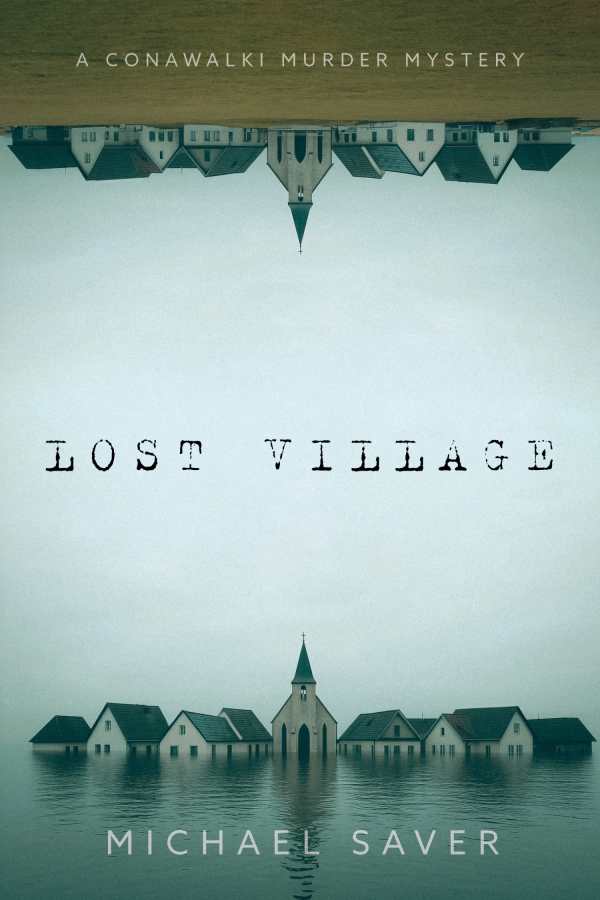Lost Village
A Conawalki Murder Mystery
Lost Village is an eerie mystery novel in which a town’s citizens contend with a murderer in their midst.
In Michael Saver’s atmospheric mystery novel Lost Village, an unidentified psychopath butts up against the secretive citizens of a dysfunctional Canadian town.
In the 1970s, fifteen years after civil engineers and town supervisors relocated the entire village of Conawalki to address flood zone issues, feelings of lost authenticity and history plague the community, wearing on its citizens’ psyches. While many of the buildings that the residents remember and grew up with are the same, the setting on the whole is eerie. It makes people feel unstable, and there’s a supernatural sense that the village has been broken by its artificial identity. Even as Conawalki’s residents strive to recover their lost identities, they find ways to hide who they really are.
In this uneasy setting, a murderer, known as the One, delights in hurting people. They attend to nefarious business at the end of a long street in the book’s opening. Though the curious residents, including elderly twin sisters, don’t see what the One is doing, they intuit that it’s nothing wholesome nor legal. The nosy neighbors are also being watched, though, opening up part of the general motive for murder. Still, the full story of the One remains unclear until much later in the book.
Skipping between perspectives to develop the residents’ backstories, other potential paths to murder are revealed at a satisfying pace. There are just enough details to flesh out the backstories and emotional landscapes of multiple residents, including an apprentice funeral home director, Greg, and his belligerent uncle (their relationship to one another is cold).
Still, three teenage boys end up centering the story more than the rest of the residents: Mark, Flix, and Seb, who play in a band, listen to 1970s glam rock, and come to terms with their sexual orientations. With most of the townspeople being more conservative in their interests, the trio end up being outsiders, facing bullying and homophobia even when they try to keep low profiles. Their connections to the One’s victims, proximity to the murders, and fringe existences also make them natural investigators and suspects.
As the teenagers build relationships with other residents and share their music, they come closer to exposing the false faces of the village. Indeed, through them, themes of identity are explored with depth––a sturdy thread amid the entertaining tempo of the storytelling. In later scenes, the villagers gather at the town center, prompting a crescendo in the action. Facing them, the One battles to stay concealed.
Lost Village is an entertaining small town mystery novel about complex people facing all too human problems.
Reviewed by
Clarissa Adkins
Disclosure: This article is not an endorsement, but a review. The publisher of this book provided free copies of the book and paid a small fee to have their book reviewed by a professional reviewer. Foreword Reviews and Clarion Reviews make no guarantee that the publisher will receive a positive review. Foreword Magazine, Inc. is disclosing this in accordance with the Federal Trade Commission’s 16 CFR, Part 255.

